Tritonia pallida may refer to:
- Tritonia pallida (plant), a species of plant in the family Iridaceae
- Tritonia pallida (gastropod), a species of nudibranch in the family Tritoniidae
Tritonia pallida may refer to:

Echinacea is a genus of herbaceous flowering plants in the daisy family. It has ten species, which are commonly called coneflowers. They are found only in eastern and central North America, where they grow in moist to dry prairies and open wooded areas. They have large, showy heads of composite flowers, blooming in summer. The generic name is derived from the Greek word ἐχῖνος, meaning "hedgehog", due to the spiny central disk. These flowering plants and their parts have different uses. Some species are cultivated in gardens for their showy flowers. Two of the species, E. tennesseensis and E. laevigata, were formerly listed in the United States as endangered species; E. tennesseensis has been delisted due to recovery and E. laevigata is now listed as threatened.
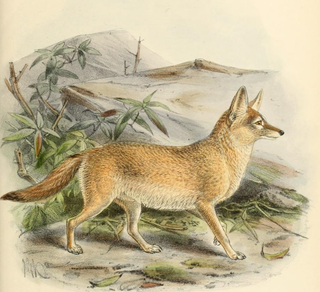
The pale fox is a species of fox found in the band of African Sahel from Senegal in the west to Sudan in the east. It is one of the least studied of all canid species, in part due to its remote habitat and its sandy coat that blends in well with the desert-like terrain.
Tritonia may refer to:
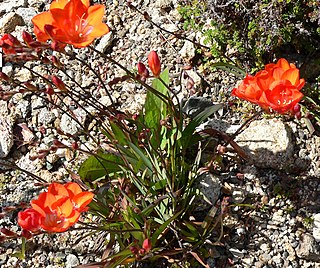
Tritonia is a genus of flowering plants in the iris family first described as a genus in 1802. They are naturally distributed across southern Africa, with a high concentration of species in Cape Province of western South Africa. The genus is closely related to the genus Ixia.
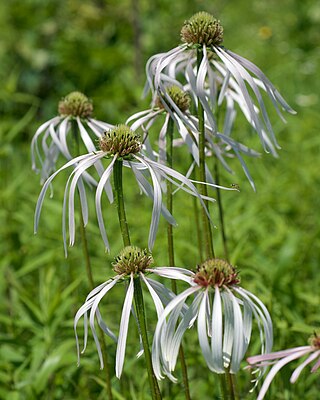
Echinacea pallida, the pale purple coneflower, is a species of herbaceous perennial plant in the family Asteraceae. It is sometimes grown in gardens and used for medicinal purposes. Its native range is the central region of the United States and Ontario, Canada.

Iris pallida, the Dalmatian iris or sweet iris, is a hardy flowering perennial plant of the genus Iris, family Iridaceae. It is native to the Dalmatian coast (Croatia) but widely naturalised elsewhere. It is a member of the subgenus Iris, meaning that it is a bearded iris, and grows from a rhizome. It adapts well to different environments and is used in many different ways.
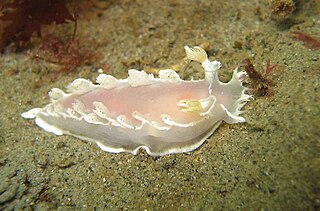
Tritoniidae is a taxonomic family of nudibranchs in the suborder Cladobranchia, shell-less marine gastropod molluscs. This family includes some of the largest known nudibranchs, with the NE Atlantic species Tritonia hombergii reaching 20 cm in length. It is the only family in the monotypic superfamily Tritonioidea.

Arctostaphylos pallida, commonly known as pallid manzanita, Oakland Hills manzanita, and Alameda manzanita, is an upright manzanita shrub from the Ericaceae, or heath family. It is endemic to the eastern San Francisco Bay Area of Northern California.
T. crispa may refer to:

Tritonia is a genus of sea slugs, nudibranchs, shell-less marine gastropod molluscs in the family Tritoniidae.
Tritonia pallida is a species of dendronotid nudibranch. It is a marine gastropod mollusc in the family Tritoniidae.
T. elegans may refer to:
T. rubra may refer to:
C. pallida may refer to:
H. pallida may refer to:
Blazing star may refer to:
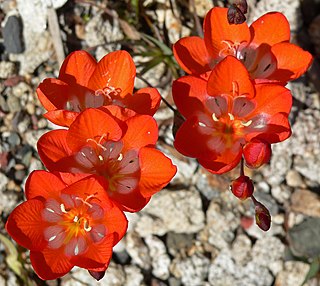
Tritonia crocata is a plant species in the family Iridaceae.
The Latin word frondosa is the species name of many unrelated fungi, plants, and animals that have a frondose shape.
Tritonia pallida is a plant species in the family Iridaceae.